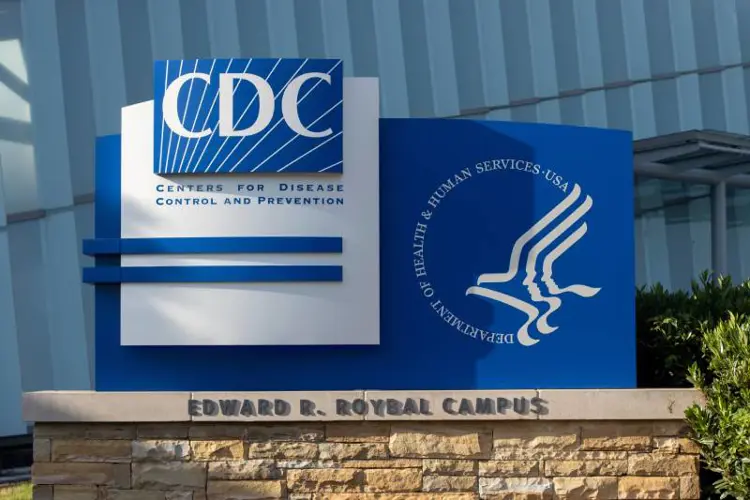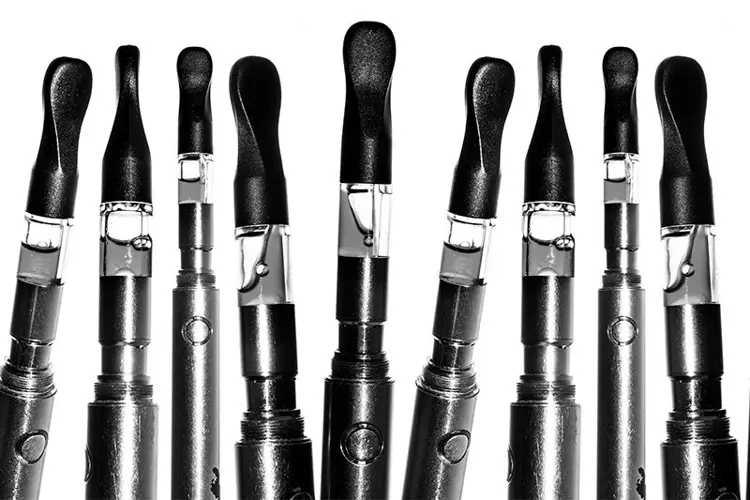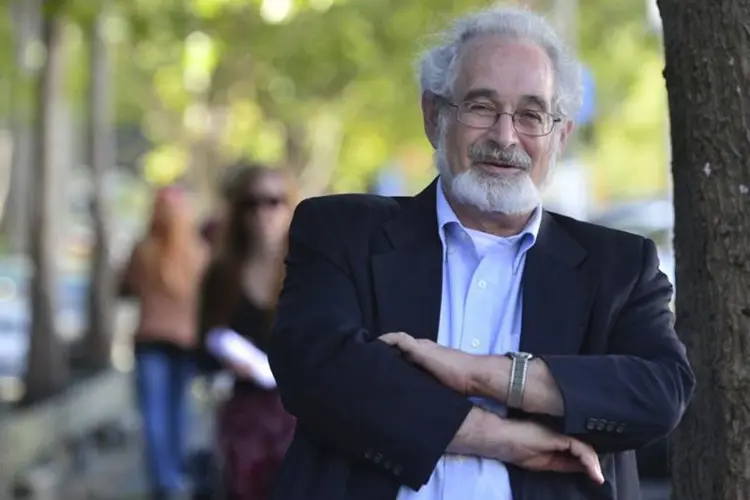Baltimore calling
Last year, a post on a Reddit vaping thread asked for help on a Johns Hopkins University medical study in Baltimore. The researcher was seeking vapers to take part as paid volunteers.
“I am a study coordinator at Johns Hopkins University,” the post began. “Our study, VAPORS, is researching the long term effects of e-cigarettes/vapes on our participant's oral, lung, and cardiovascular health. We are looking for participants who use e-cigs but do not smoke cigarettes….Our study includes compensation for your participation, and we even provide participants with Fitbits to track physical activity. If you have any questions about the study just email or pm me and I will be happy to answer. Since I am researching the effects of vaping, I would like to get more involved in it. So if anyone has any suggestions let me know. Thanks for reading this! Also thanks to the mods for letting me post this.”
Several vapers engaged with the author on Reddit, and many showed a willingness to take part in the study. The Hopkins author seemed like a nice guy, and cheerfully answered several questions about the study. But he didn’t answer them all.
Simply put, the research deck in the U.S. is stacked against vaping.
“I don't do studies, so I may not know the right terminology, but do you have a ‘mission’ or ‘abstract’ of what you will study or what you are trying to ‘prove/disprove’?” asked poster Skycladmoondnsr. “It would make sense to have some sort of parameters in what you will study and the desired outcomes. Are you able to elaborate?” That excellent question was ignored, as was a related question by me.
But a quick look at the researchers' website (no longer in operation) filled in some of the details:
There has been rapid increase in use of electronic cigarettes (ECs) among young adults, in part due to targeted advertising and the perception that ECs are safe. Our understanding of the long-term effects of EC use is poor. The goal of this study is to determine health effects associated with chronic use of ECs in young adults.
There are abundant data on the adverse effects of cigarette smoke on oral, pulmonary and cardiovascular health. However, this information is virtually non-existent for EC users due to lack of long-term follow-up of EC users. In 2016, the FDA extended their regulatory authority to include ECs. Hence, it is critical to determine what risks ECs may pose in vulnerable populations, such as young adults, so appropriate, evidence-based regulations can be enacted.
This study is divided into two parts, with an Oral study and a Cardiopulmonary sub-study. In order to participate in the sub-study, you must consent to the oral study. To receive all remuneration advertised, you must participate in both the oral study and the cardiopulmonary sub-study.
Oral VAPOR Study: This study is designed to evaluate the effects of chronic EC use on measures of oral health in young adults.
Primary Aim: To determine if there is an alteration in oral microbiome in young adult EC users as compared to non-users and over time.
Secondary Aim: Determine differences between chronic EC users and non-users overtime for the following: (1) markers of oral immune response, (2) markers of oral DNA damage/oxidative stress.
Cardiopulmonary VAPOR Sub-Study: This study is designed to evaluate the effects of chronic EC use on measures of pulmonary and cardiovascular health in young adults.
Primary Aim: Our primary aim of the study is to observe how ECs will affect lung function. Tobacco smokers typically exhibit FEV1 and FVC values below levels that are predicted from demographic reference values, and we hypothesize that EC users will also experience greater decline in lung function compared to non-users.
Secondary Aim: The secondary aims are to quantify differences between chronic EC users and non-users and differences over time for the following measures:
(1) blood pressure, (2) indicators of physical activity and HR, and (3) biomarkers of exposure (ie metals, volatile organic compounds, heterocyclic amines, polycyclic aromatic hydrocarbons and other toxicants as well protein adducts of these toxicants) and toxicity (ie inflammatory cytokines, hsCRP, troponin, oxidative stress markers, and other metabolites) in urine and blood.
Inclusion Criteria:
- Age 18 to 34 years
- E-cigarette user or non-user
- Former or never smoker
- Have a smartphone for personal use that is compatible with VAPORS App
- Able to speak and read English
- No evidence of oral abscess, periodontal disease, or multiple dental cavities
- Have not had a professional dental cleaning in the last 3 months
- Not planning to leave area within the next 2 years
A couple things here should jump out for longtime vapers who've seen a lot of science spun to create doubt about vaping. First, they begin by making a political statement about vaping: “There has been rapid increase in use of electronic cigarettes (ECs) among young adults, in part due to targeted advertising and the perception that ECs are safe.”
Any study of vapers or vaping that doesn’t compare to smoking is likely to be a hunt for scary sounding results.
That is a typical — and unproven — assumption made by an ideologue. It is not something that unbiased scientists should ever say. What does it have to do with this study, which is supposed to be a medical assessment of oral and heart/lung health?
The other red flag is that the authors intend to compare the health of vapers only to non-vapers, and not to smokers. Since almost all vapers are ex-smokers, we can assume that many will have some residual evidence of the oral and lung function effects from their smoking days. What would such a comparison prove?
And what’s the point of comparing vapers and never-smokers/never-vapers? The vast majority of vapers are using e-cigarettes as an alternative to smoking. Any medical study of vapers or vaping that doesn’t compare vaping to smoking is likely to be a hunt for scary sounding results. And indeed, that appears to be exactly what this one is.
We’ve seen researchers recruiting vapers before. It hasn’t worked out well for us in the past. Are all American vaping studies designed to show alarming results?
Why are most U.S. vaping studies negative?
There have been a lot of medical studies on vaping in recent years, and very few of them have contributed to to any real understanding of vaping and its associated health risks.
In fact, many medical researchers in the U.S. seem to decide in advance that vaping has worrisome consequences, and then do the research to illustrate it. Too often they have then actively promoted their predetermined conclusions through exaggerated press releases and media interviews. Why does this happen so often? Simply put, the research deck in the U.S. is stacked against vaping.
Follow the money
There is good vaping science out there, but we should beware of research funded by federal government agencies. Many vaping studies are funded by grants from the joint FDA Center for Tobacco Products (CTP)-National Institutes of Health (NIH) Tobacco Regulatory Science Program (TRSP), which was set up as part of the Tobacco Control Act in 2009. NIH reviewers have several criteria they must consider when deciding if a grant application will be approved for TRSP funding.
One of those criteria is “significance”: “Does the project address an important issue or a critical barrier in regulatory authority over tobacco products? If the aims of the project are achieved, how will regulatory science research be informed or regulation affected? How will successful completion of the aims have affect on the concepts, methods, technologies, or regulation of tobacco products?”
In other words, researchers are reminded that part of their mission is to do science that gives the CTP information it can use to better regulate “tobacco products.” To the FDA, better regulation — as shown by the agency’s Deeming Rule — equals virtual prohibition for companies that don’t have spare millions to gamble. And prohibition means hard times for vapers and smokers.
The ideology of zero harm
There are two ways to look at e-cigarettes: as an alternative to smoking with tremendous benefits for public health because it’s dramatically less harmful than smoking — or as a product that poses avoidable risks and may encourage teen nicotine use.
People who recognize e-cigs’ potential for good — like vapers and harm reduction proponents — usually focus on the opportunity for large numbers of smokers to migrate to a much safer alternative. More than 450,000 Americans die prematurely every year from smoking-related disease, they say. Let’s give those smokers a product they like that won’t kill them.
The belief that a product must be shown to cause zero harm before being allowed on the market is completely at odds with the concept of harm reduction.
Unfortunately, American public health is informed by an institutional opposition to harm reduction. They say that any risk, no matter how small, must be avoided. These folks point out that vaping hasn’t been proven safe. They aren’t content with it being safer than cigarettes; they demand it be absolutely safe — like clean air.
The belief that a product must be shown to cause zero harm before being allowed on the market is completely at odds with the concept of harm reduction. Most of the studies that lead to scary headlines about vaping were done from the perspective of zero harm-only. The scientists — and, more importantly, the funders — avoid comparisons to the likely alternative choice: cigarettes. And they’re almost always willing to participate in the PR scams that create the terrible public perception of vaping.
The Baltimore study, part II
Following the Reddit post, a commercial vaping website that also includes a news/blog section ran an article about the Baltimore study that not only described the study, but strongly recommended that vapers participate.
“According to the website, Johns Hopkins is willing to pay up to $50 per visit plus $5 per month, and they get a free FitBit!” the writer gushed. “Since the study lasts an anticipated two-years, that means the lucky participants can make as much as $1200 while helping to provide quality research to a highly reputable scientific institution.
“In the age of Junk Science and Fake News, the chance to participate in an unbiased vape study involving Johns Hopkins is a wonderful opportunity.”
“Until there are major reforms to tobacco regulatory science, your default position when you are approached or see an ad for research participation should be skepticism”
This sounded more like an ad for the study than a story about it. But even if it wasn’t an ad (the writer assured me it was not, and I believe him), what would make anyone think that this study is a “wonderful opportunity” for vapers? Shouldn’t we know better?
To be fair, not everyone spends their days looking at all the terrible studies coming from “highly reputable” institutions. If this writer had done some checking, he’d have known that junk vaping research has come from many of the most prestigious academic institutions in the country. The University of California, the Harvard Chan School of Public Health, the Mayo Clinic, Dartmouth, Yale...we could go on for a long time listing examples of institutions doing slanted vaping research.
However, if you decide to take the time to write about such studies, you ought to make it your business to learn the warning signs of bad vaping research. That also goes for vape shop owners who decide to post flyers for studies, and for the vapers who are considering participating in research like the Baltimore study.
What makes a vaping study likely to be bad?
You can’t ever be certain that a scientific study will be bad for vaping — at least until you see headlines like, “Teens Figured Out How to Make Vaping Even Worse for You” and “E-cigarette vapor filled with cancer-causing chemicals, researchers say”. But there are certainly some strong indicators of where the research is headed that might alert you.
- Who paid for it? It’s fair to say that any study funded by the FDA Center for Tobacco Products (CTP), or the National Institutes of Health (NIH) — especially the National Cancer Institute (NCI) — will not be a study that helps vaping succeed as a low-risk alternative to smoking.Looking at the grant proposal for the Baltimore study, it’s spelled out neatly. The lead author explains that analysis of the data he collects “will fill a critical gap in our understanding of alterations in host oral defense and a potential microbial shift in EC users, which may predispose them to oral diseases; thus, providing the evidence-based foundation for future public health policies on EC use.” The research hadn't been done yet!
- What has the author done before? I found the grant proposal by googling “Shyam Biswal e-cigarettes.” That also turned up his 2015 mouse study, and the accompanying sensational press release from Johns Hopkins. I also found a blog by Dr. Konstantinos Farsalinos explaining why the mouse study was worthless.That study came from Johns Hopkins too. There’s nothing uniquely noble or good about this university — or any other, for that matter. The fact is that their researchers are fighting for the same dollars all the others fight for. And if the money comes from the FDA or NIH, you’re almost certain to see the same kind of junk — because that’s what the FDA demands.
- Have the authors made political statements in the study proposal, or do they have a history of negative comments in the press about vaping? As we saw in the Baltimore study, authors who make claims about flavors, advertising, or other issues not related to what their research is supposed to address are likely to produce a study that will be bent toward exaggerating the harms and underplaying the benefits of e-cigs. When the first line in the study’s description reads, “There has been rapid increase in use of electronic cigarettes (ECs) among young adults...” and it’s a medical study that is not concerned with issues of advertising or perception, you’re heading into the spin zone.
- Are the researchers comparing vapor to smoke, or vapers to smokers? Waterloo (Ontario) University sociologist Amelia Howard wrote an excellent Facebook post addressing the issue of vapers participating in scientific studies. “If someone says they want to evaluate if vaping is harmful,” she wrote, “they need to be considering harms relative to smoke, and also need to state what their study will actually add given that the (marginal) risks of nicotine are well established, and these risks apply to vaping.” Dr. Farsalinos has also hammered this point repeatedly. Vaping risks should always be compared to smoking risks.
If we don’t protect vaping, no one will
Howard’s post goes into more detail about other warning signs of biased research. But she also makes a larger point that vapers should always consider when deciding whether to assist or participate in a medical study.
“Until there are major reforms to tobacco regulatory science, your default position when you are approached or see an ad for research participation should be skepticism,” she writes. “Vapers need to understand that tobacco control researchers are not bad people, but (in the United States especially) they are operating in a system that is in conflict with harm reduction, and full of propaganda, and they pose a potential threat to the future of vaping just by doing their jobs.
“Researchers need people for their studies, but you don't need to facilitate research that can be used to promote regulations that put you or your business or both at risk. Vaping was made by users, vaping BELONGS to users, and the user community must call for research that benefits current and future vapers, and respects the harm reduction context of these technologies.”
We should refuse to help a dishonest regulatory system use science against us.
Vapers have lots of resources to get answers about studies or researchers. If you’re still uncertain after looking at the four-point test above, try something revolutionary: ask someone! Any of the people who work at consumer or trade associations would be glad to have a quick look at the study in question and offer an opinion, or steer you to someone better equipped to do it.
When push comes to shove, we need to get smart about which researchers we help and which we ignore. The terrible truth is that in the United States, most of the time, studies — especially medical studies, and studies of vape shops and social media — will cause more harm than good. We should refuse to help a dishonest regulatory system use science against us.
The Freemax REXA PRO and REXA SMART are highly advanced pod vapes, offering seemingly endless features, beautiful touchscreens, and new DUOMAX pods.
The OXVA XLIM Pro 2 DNA is powered by a custom-made Evolv DNA chipset, offering a Replay function and dry hit protection. Read our review to find out more.
The SKE Bar is a 2 mL replaceable pod vape with a 500 mAh battery, a 1.2-ohm mesh coil, and 35 flavors to choose from in 2% nicotine.
Because of declining cigarette sales, state governments in the U.S. and countries around the world are looking to vapor products as a new source of tax revenue.
The legal age to buy e-cigarettes and other vaping products varies around the world. The United States recently changed the legal minimum sales age to 21.
A list of vaping product flavor bans and online sales bans in the United States, and sales and possession bans in other countries.





















